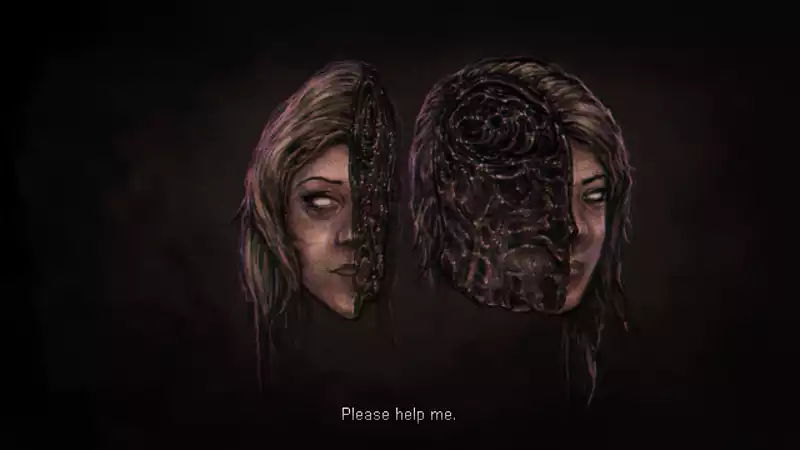In this dark point-and-click adventure, an effort at unease quickly begins. The nameless protagonist, freed of his straitjacket, finds himself in an unreal landscape. Standing at the top of a narrow path surrounded by an abyss, the only way to follow this path is to reach the head of a giant talking clown. The clown, after telling a dark joke, lets you in through its mouth and the game begins in this warped carnival world.
Publisher Wadjet Eye has both developed its own titles ("Unavowed," "The Blackwell Legacy") and launched projects for other developers ("Primordia," "Technobabylon"), With a reputation for contemporary point-and-click excellence, Strangeland struggles to compete with the company's better offerings in such a stable environment.
It certainly has its own style, however. Most of the art uses a dark and tragic palette, which is entirely appropriate. The music also fits this scene well. Somewhere in there is the core of carnival music, but the joy and warmth are distorted beyond recognition. Notes are inverted and twisted, making the game sound as disturbing as it looks.
Upon entering the carnival, you find a woman tearfully throwing herself into a well. Your character has lost her memory, but you know that she is important to you, so the goal of the game is ostensibly to save her. You see her jump in time and again, but you cannot stop her each time, and she follows you on your journey as you progress.
Strangeland takes a darker path than is generally expected in the genre, but still follows certain rules. There is an inventory, items can be combined before they are used, and there are puzzles typical of the genre.
For better or worse, Strangeland's dark heart is its determination to stay true to its artistic vision. It is a world of metaphor and allegory. The characters you try to talk to usually stall the conversation and refuse to give a straight answer. But in this world, it makes perfect sense. Neither embarrassingly blunt nor pretentiously opaque, "Strangeland" manages to balance its oddities beautifully throughout its four- to five-hour running time. The atmosphere and storytelling are both excellent.
It's the "game" part of the experience that wobbles. The art is fantastic. Everything that isn't stark or distorted is strangely organic. However, the darkness makes it difficult to discern fine details and it is easy to miss objects that can be picked up or touched. Since most of the puzzles are simple, this can be the biggest challenge.
For a game that boldly blazed its own trail in terms of subject matter and atmosphere, the puzzle design is generally quite disappointing. Carnival's shooting gallery is simply a matter of clicking targets with the mouse, and it's a little disappointing to find yourself making grappling claws in a world where you can talk to birds, kamado, and insubstantial heads.
The game's most infuriating challenge is one of the tiresome tile puzzles (here a board of lights), where pressing one activates or deactivates the ones around it until you complete the board. With a combination of skill and luck, it didn't take too long, but it's a good example of how puzzles lack imagination in the worldview. If you get stuck, at least there is an in-game hint system via a pay phone, and in typically bizarre fashion, you can receive hints from a hateful and angry version of yourself.
I avoided spoilers, but it is worth noting that "Strangeland" is quite explicit about death, grief, regret, and self-harm and suicide.
There are moments of perfectly appropriate dark humor, but there are also several examples of arbitrary dialogue that seem aimed at a more light-hearted laugh. Had this been the norm, it could have served as a commentary on the strange and unpredictable human response to trauma and tragedy. In isolated sections, however, it is simply out of place.
There is an enormous amount to unpack and interpret, but one need not take a scholarly approach to enjoy the game. If you just want to enjoy a surreal horror adventure, "Strangeland" definitely provides that. But the further you get away from interpreting its message, the harder it becomes to enjoy. Considered purely as a point-and-click game, "Strangeland" is not great. Considered purely as an artistic exploration of a difficult subject, it is generally successful. The truth of the situation, of course, is the mix of the two, which creates an uneven experience.
I'm very happy with Strangeland: it's smart, unapologetically creepy and depressing, and it knows exactly what it wants to do. But for other games to follow in Strangeland's deep, dark footsteps, they will need to do a better job of telling a story with sharp, compelling game design.
.

Comments